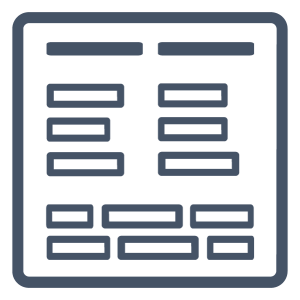Week 2: The research process

Overview
Research is a dynamic process.
Based on a variety of issues and needs, researchers are continually asking questions. The answers to these questions develop additional questions or lines of inquiry. As a result, new knowledge is continuously built upon previous discoveries.
For example, an initial question about the nature of the universe can lead to other questions about atoms, dark matter, and the presence of other forms of life beyond our galaxy. Or a question about the nature of communication can lead to queries about propaganda, misinformation, disinformation, and “fake news.”
Developing a research question is the first step of the research process. Research questions are different from regular everyday questions. Regular questions arise from our everyday needs (for example, “What can I do about my insomnia?”).
Alternatively, research questions require an in-depth look into an issue and advanced research, and therefore are more complex to answer (for example, “How does insomnia impact the academic performance of first-year university students?”)
Research questions need to be researchable, complex, arguable, feasible, focused, and specific.
In order to ask good questions and develop valid answers, we need to be able to find, evaluate, and understand what other scholars have discovered and said about a given topic.
We start with an initial search for background information. Then, we can read the materials we find in phases, starting with pre-reading texts to get an overall sense of key ideas and context and then progressing to a deeper reading to understand more fully the scholarly conversation being had about a topic.
Readings
Section I: Research process
Booth, W. C., Colomb, G. G., Williams, J. M., Bizup, J., & Fitzgerald, W. T. (2016). The craft of research (4th ed.). University of Chicago Press.
- Prologue (pp. 3-8).
- Chapter 1: Thinking in print: The uses of research public and private. (pp. 9-15).
McMaster Libraries. (2016, April 22). How library stuff works: Search vs research [Video]. YouTube. https://www.youtube.com/watch?v=minZ0ABVqyk&t=52s. (2:36 minutes)
UCLA Library. (2014, September 9). Mapping your research ideas. [Video]. YouTube. https://youtu.be/jj-F6YVtsxI. (2:52 minutes)
Section II: Strategies for learning
McGuire, S. Y. (2018). Teach yourself how to learn. Strategies you can use to ace any course at any level. Stylus.
- Chapter 5, p. 43.
Before class activities
 Key questions to ask while reading and watching
Key questions to ask while reading and watching
- What is research?
- What are the characteristics of a good researcher?
- Why pre-read?
 “Pile of words”: Group and label key concepts
“Pile of words”: Group and label key concepts
Organize into two lists of similar terms and label each list (include definition of each label).
Remember: You may already understand some of these ideas relatively well and others may be new to you—look up (e.g., in a dictionary or encyclopedia) the unfamiliar concepts in order to create your lists.
Make note of your reasons for grouping the ideas together as you will share them in class. These are self-paced individual activities, for which there are no right or wrong answers. The instructor will not grade this work.
 Predict a learning outcome
Predict a learning outcome
After class activities
After class, annotate each reading for key ideas. For videos and podcasts, you can annotate the transcript.
Summarize the author’s key ideas from each reading. Highlight the following information:
- Purpose of the reading;
- Scope (the extent of the study);
- Thesis (the main argument[s]);
- Method (research method if applicable);
- Outcome(s) and conclusion.
Respond to this statement about the readings: do you agree or disagree with the statement and why?
“You may not yet be a professional, but learning to do research now will help you today and prepare you for what’s to come.” (Booth et al., 2016, p. 3).
Did this reading provide any inspiration or insights you can use in this or any of your other classes? If yes, what is the inspiration and/or what are the insights?

